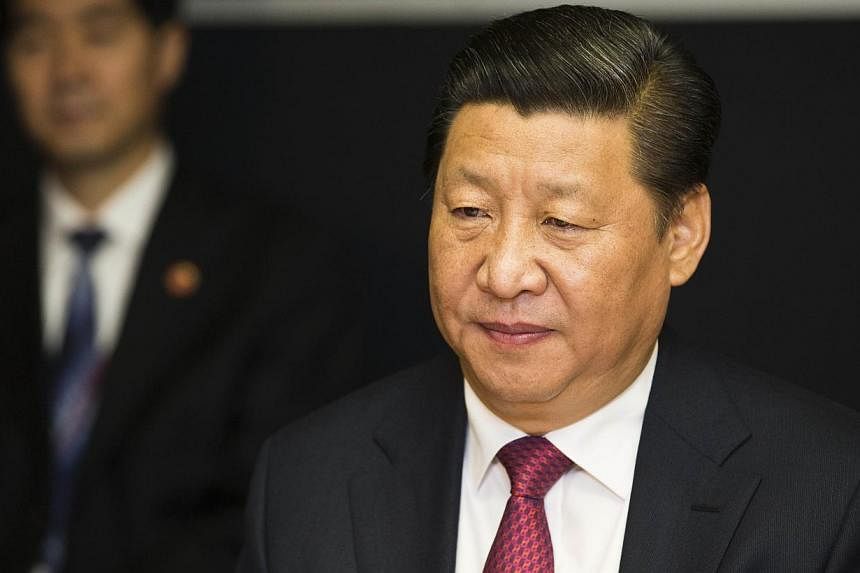HONG KONG (Reuters) - Hong Kong's top law enforcers, schooled in British-style judicial independence and separation of powers, are being cycled through Communist Party schools in China, where judges are appointed by the party and police are charged with crushing dissent.
One senior Hong Kong police officer, who has been on multiple trips to the mainland, estimated that "thousands of officers of all ranks" have been sent all over China since the handover on what he described as "hearts and minds" programmes. Members of the city's renowned anti-graft body are being sent on similar courses.
"These trips usually involve lots of lunches, dinners and sightseeing," the officer told Reuters. "The idea is to show how much progress China is making and familiarise Hong Kong officers with counterparts over there."
Some of these courses include instruction in the ideological teachings of former Presidents Jiang Zemin and Hu Jintao, and the current vision of President Xi Jinping for the "great rejuvenation of the Chinese nation."
The aim: To bring the guardians of the Hong Kong system, which enshrines broad individual freedoms, closer to the mainland's system, where dissent is repressed.
There is a clear political dimension to the exchanges. Beijing organises visits to the China Executive Leadership Academy in Shanghai, which runs a national studies course for senior Hong Kong police, according to reports in the Hong Kong police internal newspaper, Offbeat.
In one report, the academy was described as the "cradle" for nurturing senior central government executives. It said the national studies course included lectures on the theory of one country, two systems and other key Communist Party doctrines.
ENTERTAINING MAINLAND OFFICIALS
When former leader Deng Xiaoping proposed the one country, two systems model for Hong Kong it reassured a city nervous about Chinese rule ahead of the 1997 handover from Britain. Hong Kong could keep its independent system of justice. A vast gulf still remains between the two systems, but there are signs Beijing is expanding its sway over law enforcement agencies in the Asian financial hub.
The former head of Hong Kong's Independent Commission Against Corruption (ICAC), Timothy Tong, entertained mainland officials so often and lavishly in his five-year tenure to 2012 that he is now under investigation for alleged corruption offences. Tong has denied any wrongdoing.
Alongside the corruption probe, Hong Kong lawmakers last year mounted two separate inquiries into the ICAC's spending on travel and entertainment while Tong was in charge. In reporting its findings in November last year, the Hong Kong Legislative Council Public Accounts Committee published details of 22 official ICAC delegations Tong led to mainland cities and Macau while he was commissioner. The committee found that the trips cost almost HK$2 million (S$338,902).
These visits included multiple meetings with China's top prosecutor, the Procurator General of the Supreme People's Procuratorate, and dozens of senior national and provincial officials. After he left the ICAC, Tong was appointed to the Chinese People's Political Consultative Conference (CPPCC), a prestigious advisory body to the mainland government.
The Public Accounts Committee questioned Tong about dinners where he hosted Chinese officials with wine, gifts and toasts of Moutai, a brand of expensive distilled spirit favoured at mainland banquets.
In evidence to the committee, Tong confirmed he had also hosted meals for mainland officials from the central government's liaison office in Hong Kong and officials from the United Front Work Department, a Communist Party body that discreetly builds support for Beijing across Hong Kong's open society. But he also told the committee that the idea of joining the CPPCC had never crossed his mind until he was approached to take up the post about six months after he left the ICAC.
Tong's lawyer did not respond to questions sent by email. The ICAC, a 40-year-old force credited with ending rampant official graft in colonial-era Hong Kong, stressed its independence and impartiality in a written response to Reuters.
It noted on-going co-operation and exchanges with officials on the mainland and in other jurisdictions but said "there is no room for any interference of ICAC's operation."
An ICAC official told the Public Accounts Committee that mainland trips had since been curtailed. But a visit last month by current ICAC commissioner Simon Peh to the academy in Shanghai shows that links have been maintained at the top level at least. The agency told Reuters there were currently no plans for future visits.

